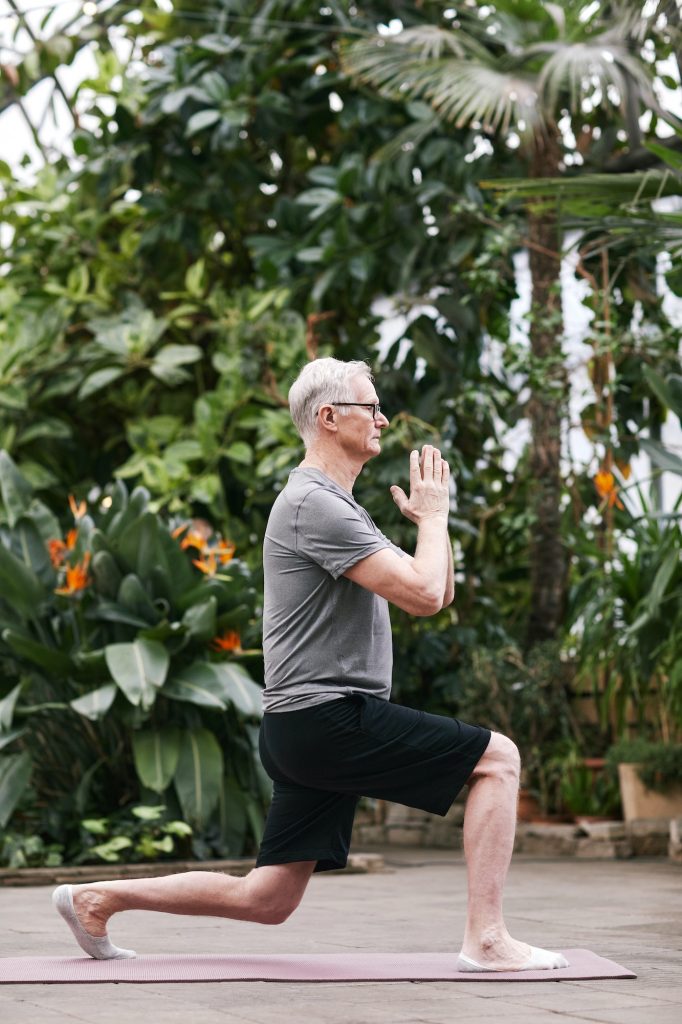Endorphins, health, productivity, and other buzzwords surround what we gain from exercise, but new research focusing on the mental and brain health may renew the focus of the exercises we do
Photos by Marcus Aurelius/Pexels and courtesy of Jaymes Shrimski
I believe in the power of exercise as a tool against depression and I happily cite myself as a ready example of its effectiveness.
For an eight-month period in my college years, I was, at the instruction of my psychiatrist, on a daily dose of selective serotonin reuptake inhibitors or antidepressants.
They’re not a cure for the feeling which I’d describe as a numbness more than sadness, but they provided a small window from which I could view things a little clearer. With the little clarity this prescribed tool provided me, I was one of the lucky ones to tunnel my way out of the muck and into a calmer, healthier mental environment.
Referencing exercise, assistant professor of psychiatry at Harvard Medical School Dr. Michael Craig Miller says, “For some people it works as well as antidepressants, although exercise alone isn’t enough for someone with severe depression”
I held onto a second tool too, and it proved equally important. Running. Sometimes, the runs were sunny, relaxing campus jogs; other times they were brawling, sweaty blips in time.
Regardless of the variant, they provided me with little runner’s highs. With these highs, a social support system I was lucky to have, and my little clear window, I made it through—and continue to floss—my mental environment of dark clouds.
There is science behind my belief
Current research supportive of my second tool exists. Referencing exercise, assistant professor of psychiatry at Harvard Medical School Dr. Michael Craig Miller says, “For some people it works as well as antidepressants, although exercise alone isn’t enough for someone with severe depression.”
There is a whole world of diagnosable and treatable mental health diseases and I strongly urge that anyone with the means to seek out a mental health professional do so—if only to gain a grain of insight into their mental landscape.

Regardless of whether you have an existing diagnosis or not, exercisers are treated to a rush of endorphins post-workout. To add another term to the lexicon of words we file under science, we are also treated to a group of proteins called neurotrophic or growth factors. Following their release, these proteins cause our nerve cells to grow and make new connections, thereby improving brain function.
Dr. Miller writes that the hippocampus, the region of the brain that helps regulate mood, is typically smaller in those who are depressed. He underscores the importance of exercise as he continues, “Exercise supports nerve cell growth in the hippocampus, improving nerve cell connections, which helps relieve depression.”
The hippocampus is a key part of the brain
As an idealistic freshman writing a paper on the reformation of the physical education system, my research was filled with tens of articles citing the hippocampus. The argument ran: The health of the hippocampus is important for learning and this part of the brain benefits from physical activity, hence college students who are paying to learn should be given tools to become physically active.
I didn’t exactly reform the system, but I think it was a decent paper.
Relax the pressure to run marathons or carve pectoral muscles out of your chest, and instead focus on going for a 20-minute walk. Breathe in deeply as you do, knowing well that every effort counts; every effort is an improvement
What I didn’t write about or research was the hippocampus’ role in later life where it potentially atrophies, making it difficult to form, organize, and store new memories.
An actual scientific study did that.
Recent research done at University of California in San Francisco (UCSF) finds that increased happiness in adulthood may protect against dementia. This takes what we already know about physical exercise—that it supports cell growth in the hippocampus—and tacks on a new piece of information: Improving our mental health is good for our future brain health too.
Willa Brenowitz, Ph.D., MPH, of the UCSF Department of Psychiatry and Behavioral Sciences and the Weill Institute for Neurosciences, writes that the severity of the depressive symptoms matters too. “[The] greater the depressive symptoms, the lower the cognition and the faster the rates of decline,” she says.
The argument from my freshman college paper is renewed
I type this similarly idealistic as I was in my freshman year. I stand by my thesis that a reformed physical education system may equip eventual members of the workforce with tools to remain healthy—physically and mentally—and am now bolstered by research corroborating that exercise is beneficial as a tool in the fight against depression and as a way to keep ourselves mentally sharp.
But for those of us beset by a mental illness, getting up to do anything is a task. Getting up for a run, let alone scooting to the gym to grunt away at a squat attempt, is gargantuan.
In a Harvard Health Publishing article, we learn the term “muscular meditation.” In the context of using exercise as a way to improve our mental environments, the author writes that while any type of exercise is helpful, many people find that exercises that use “large muscle groups in a rhythmic, repetitive fashion” are most effective.
Relax the pressure to run marathons or carve pectoral muscles out of your chest, and instead focus on going for a 20-minute walk. Breathe in deeply as you do, knowing well that every effort counts; every effort is an improvement.
And from a place close to my own heart, I wish you the world’s best on your journey in mental health.

